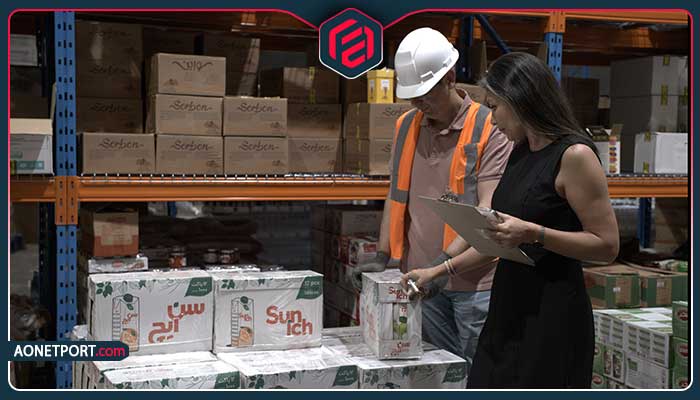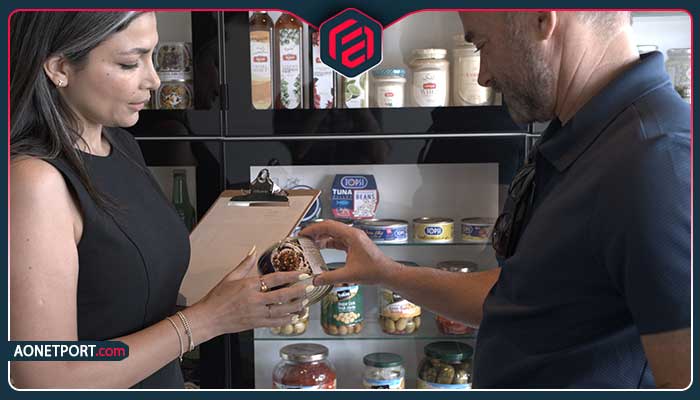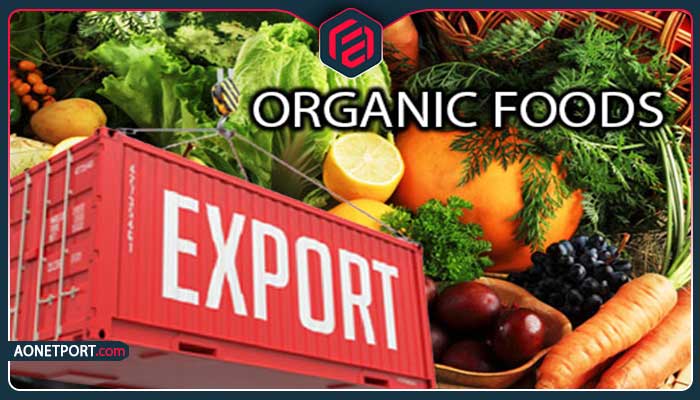Importing food into Canada is a great opportunity for businesses, but many new importers face serious problems along the way. Problems importing into Canada include items such as goods seized at customs, customs fines, and even shipping document errors, which can cause additional costs and long delays. Being aware of these common mistakes and how to avoid them can smooth the path of your business and prevent financial and time losses. In this article, we will review the most common mistakes in the process of importing food into Canada and practical solutions to avoid them.
فهرست (Table of Contents)
Why is it important to be aware of food import mistakes to Canada?
Importing food into a country like Canada is one of the most complex business processes due to its strict laws and specific standards. Many novice importers face serious problems without sufficient knowledge of the regulations.
Problems importing into Canada often occur due to unfamiliarity with customs laws and food safety standards, which can lead to goods being seized at customs, unexpected costs, and even heavy fines for the importer. Therefore, fully understanding these mistakes and how to avoid them can help save time and money, as well as succeed in the Canadian market.
The Role of Canada’s Strict Food Control Laws
Canada is one of the countries that has set very high standards for food imports. Every food product must comply with the Canadian Food Inspection Agency (CFIA) regulations in terms of hygiene, safety, and packaging. Ignoring these rules is one of the main problems of importing into Canada and can lead to goods being seized at customs.
For example, if information about ingredients or expiration dates is not correctly listed on the packaging, the goods will not be allowed to enter the Canadian market. These strict rules show that the smallest error in preparing documents and complying with standards can cause great losses for the importer.
Hidden costs due to import errors
Another issue that highlights the importance of being aware of import errors is the hidden costs that importers incur when errors occur. Delays in clearance due to shipping document errors, in addition to increased warehousing costs, may result in customs penalties.
On the other hand, if the goods are not delivered due to documentation or packaging problems, there is a possibility that they will be returned, which will impose re-shipping costs on the importer. Therefore, not having sufficient knowledge of the rules can prolong the delivery time of the goods and jeopardize the initial investment.
read more: Distribution of Iranian food in Canada
Common mistakes in the food import process to Canada
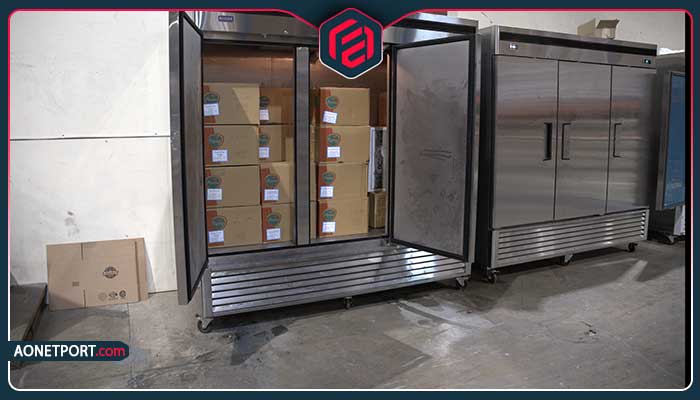
Many novice importers face problems importing into Canada without a full understanding of international laws and standards. These problems not only delay the import process, but also cause additional costs and even loss of business profits. Below, we will discuss the most common mistakes and their consequences.
Lack of necessary permits and standards for food products
One of the most common mistakes when importing food is not paying attention to the required health permits and standards. Many foods must be approved by regulatory agencies such as the CFIA before entering the Canadian market. If sufficient documentation is not provided, the likelihood of the product being seized at customs is very high. This problem not only prolongs the clearance time, but can also result in the importer facing heavy customs fines.
Shipping Document Errors and Their Impact on the Entry of Goods
Another problem when importing into Canada is related to shipping document errors. Incorrect or incomplete documents (such as a bill of lading, commercial invoice, or certificate of origin) can lead to confusion at customs. For example, entering the wrong weight or value of the goods will cause Canada Customs to stop the goods and conduct re-inspections. This can lead to additional costs and long delays, sometimes even losing customers.
Food Labeling and Packaging Problems
Food packaging and labeling are among the most important parts of the import process. Canadian law requires that all product information, including ingredients, expiration dates, storage conditions, and nutritional information, be included in both English and French. Failure to do so can result in the product being seized at customs. Substandard or poor packaging also increases the risk of damage to the product during shipping, increasing the importer’s financial loss.
Risks of Customs Seizures
One of the most serious consequences of food import mistakes into Canada is customs seizure. When goods are stopped due to incomplete documentation, improper packaging, or non-compliance with safety regulations, the importer must pay heavy costs to resolve the problem. This can sometimes result in customs fines and even the destruction or return of the goods. Such situations can wipe out the entire initial investment.
Consequences of mistakes in food imports
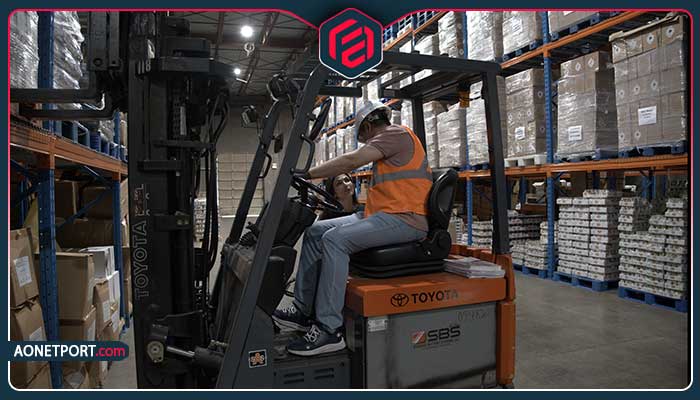
A mistake in the import process is not just a minor clerical error or careless documentation; it can have serious financial, time, and even reputational consequences for the importer. Many novice importers find that a simple mistake can cost a lot when faced with problems importing into Canada. In this section, we will examine the most important consequences of these mistakes.
Paying additional fees and customs penalties
One of the first consequences of import errors is the issuance of customs penalties. When the documents are incorrect or the goods do not meet Canadian standards, customs will not only detain the goods, but also impose financial penalties. These fees can be several times the original value of the goods and completely eliminate the importer’s profit. Also, paying warehousing fees for goods seized at customs creates an additional financial burden.
Delays in Delivery and Loss of Customers
Another common consequence of problems importing into Canada is lengthy delays in clearance. When goods are held up at customs due to shipping document errors or labeling issues, a lot of time is spent resolving the issues. These delays delay the goods from reaching customers or stores, resulting in a loss of customer trust and satisfaction. In the competitive Canadian market, this can lead to the loss of important contracts and business opportunities.
Damage to a company’s reputation
Mistakes in the import process not only result in financial costs, but also negatively affect the importer’s brand and reputation. When a company repeatedly encounters problems such as goods being seized at customs or incurring customs fines, trading partners and customers will lose trust in it. This distrust can jeopardize future business partnerships and limit growth opportunities in the Canadian market.
Tips for avoiding problems importing to Canada
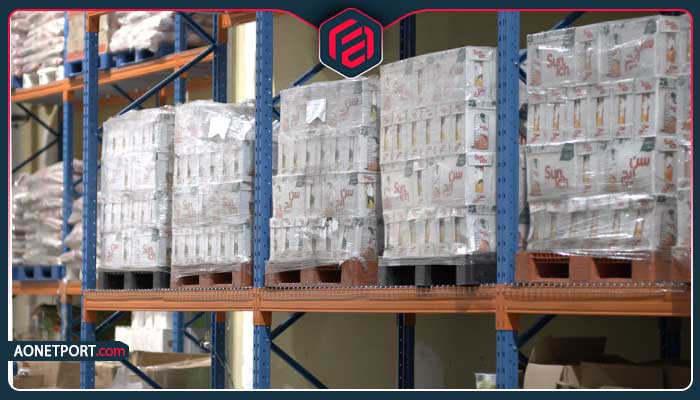
Although importing food into Canada is a complex and challenging process, by following some principles, errors and heavy costs can be avoided. Many problems with importing into Canada are preventable in advance and only require care, awareness, and cooperation with experts. Below, we will examine the most important strategies for avoiding common mistakes.
Partner with a specialist company like Aonetport
One of the best ways to avoid problems importing into Canada is to partner with experienced companies in this field. Companies like Aonetport, who have been involved in importing and clearing food for years, are familiar with all customs laws and safety standards. This minimizes the chance of errors such as shipping document errors or goods being seized at customs.
Carefully review documents before shipping
Shipping documents, including bills of lading, commercial invoices, and certificates of origin, play a vital role in the import process. The slightest mistake in these documents can stop the goods at customs. To avoid this problem, all documents should be carefully reviewed and adjusted to Canadian laws before shipping the shipment. This simple step can prevent many customs fines and long delays.
Use the services of a reputable customs broker
Customs brokers are well-versed in the import process and Canadian laws. Using their services will help ensure that all stages of clearance are completed correctly. A professional broker can help the importer prepare documents, calculate tariffs, and avoid problems with importing into Canada. This cooperation may seem expensive, but it actually saves time and additional costs.
Learn about Canada’s Customs Laws
Canada’s food import laws are constantly changing. Not being aware of these changes can cause a lot of problems. Importers must constantly update their information on new requirements, safety standards, and labeling laws. This awareness will not only prevent goods from being seized at customs, but will also prevent customs fines.
The role of the Aonetport in facilitating food imports to Canada

In the complex and challenging journey of importing food, choosing a reliable business partner can make a big difference. Many novice importers face problems importing into Canada due to lack of sufficient experience, such as goods being seized at customs, shipping document errors, or even customs fines. With its experience and specialized knowledge, Aonetport is a reliable solution to prevent these problems and facilitate the import process.
Experience in Import and Clearance Management
Aonetport has been operating in the field of importing and distributing food products in Canada and the United States for many years. With complete mastery of customs laws and clearance procedures, the company carefully manages all processes so that the goods enter the market without delay. This valuable experience minimizes the risk of goods being seized at customs or paying customs fines.
Cooperation with reputable Iranian farmers and brands
One of Aonetport’s strengths is its direct cooperation with top Iranian farmers and food brands. This ensures that imported products are of high quality and prepared in accordance with Canadian standards. Such an approach reduces the likelihood of problems with imports to Canada due to poor quality or packaging.
Customer Support to Avoid Mistakes
Aonetport does not only act as an importer, but also as a professional advisor to its customers. The company reviews documents and records before each shipment, arranges labeling and packaging in accordance with Canadian regulations, and monitors all shipping and clearance processes. This ongoing support significantly reduces the risk of errors such as shipping document errors or problems related to safety standards.
Conclusion
Importing food to Canada is a valuable business opportunity, but it also comes with many complexities and challenges. Problems importing to Canada are often caused by neglecting details such as shipping documents, packaging and labeling standards, or failing to comply with health regulations. These errors can lead to goods being seized at customs, customs fines being imposed, and even the loss of customers and capital.
However, many of these mistakes are preventable. Working with professional companies like Aonetport, carefully reviewing pre-shipment documents, using reputable customs brokers, and familiarizing yourself with current Canadian laws are some of the measures that can make the import process simpler and less risky.
With extensive experience in importing and distributing food in Canada, Aonetport stands by importers as a reliable partner and, with careful management, prevents problems with importing to Canada. Choosing such a company means saving time, reducing costs, and more confident entry into the competitive Canadian market.
Frequently Asked Questions About Problems with Importing to Canada
- Question 1: What are the most common problems with importing food into Canada?
Answer: The most common problems include incorrect shipping documents, lack of necessary permits, substandard packaging and labeling, and goods being seized at customs. These issues can cause delays and even customs penalties.
- Question 2: Why are goods seized at Canadian customs?
Answer: One of the main reasons for goods being seized is inconsistent shipping documents, incomplete labeling, or failure to comply with Canadian Food Inspection Agency (CFIA) standards. To prevent goods from being seized at customs, all documents and packaging must be checked before shipping.
- Question 3: How can I avoid customs penalties in Canada?
Answer: Complying with customs laws, accurately completing documents, using customs broker services, and working with companies specializing in food imports such as Aonetport are the best ways to avoid customs penalties.
- Question 4: How do shipping document errors affect imports?
Answer: Shipping document errors, such as incorrect weight, value, or seller information, can halt the clearance process. In addition to increased warehousing costs, this can also cause long delays in delivering goods to customers.
- Question 5: What is Aonetport’s role in reducing problems with importing into Canada?
Answer: With extensive experience in food imports, Aonetport manages all stages from document preparation to clearance. By carefully reviewing documents and packaging, the company prevents errors such as goods being seized at customs or shipping document errors and minimizes the risk of problems with importing into Canada.


